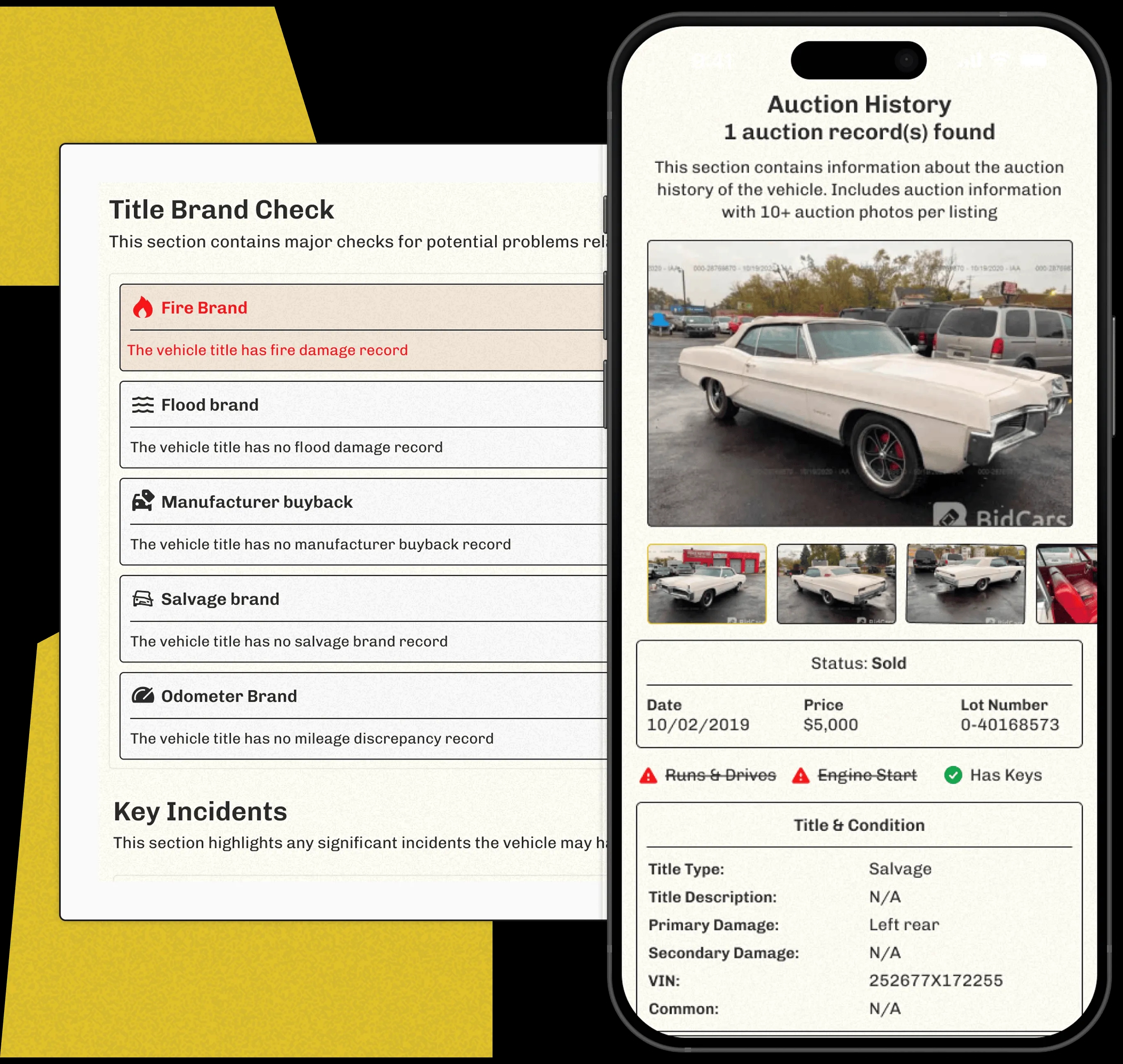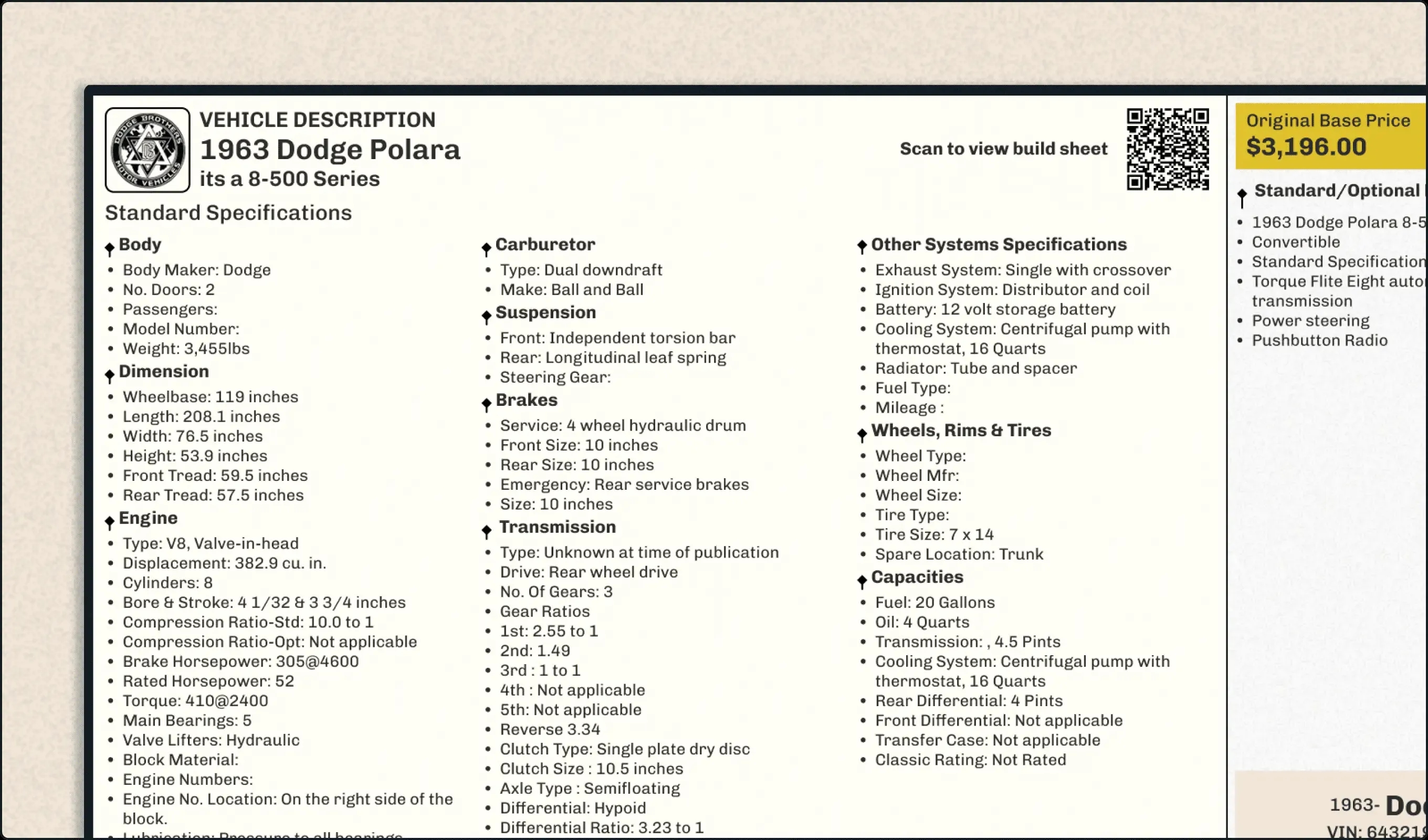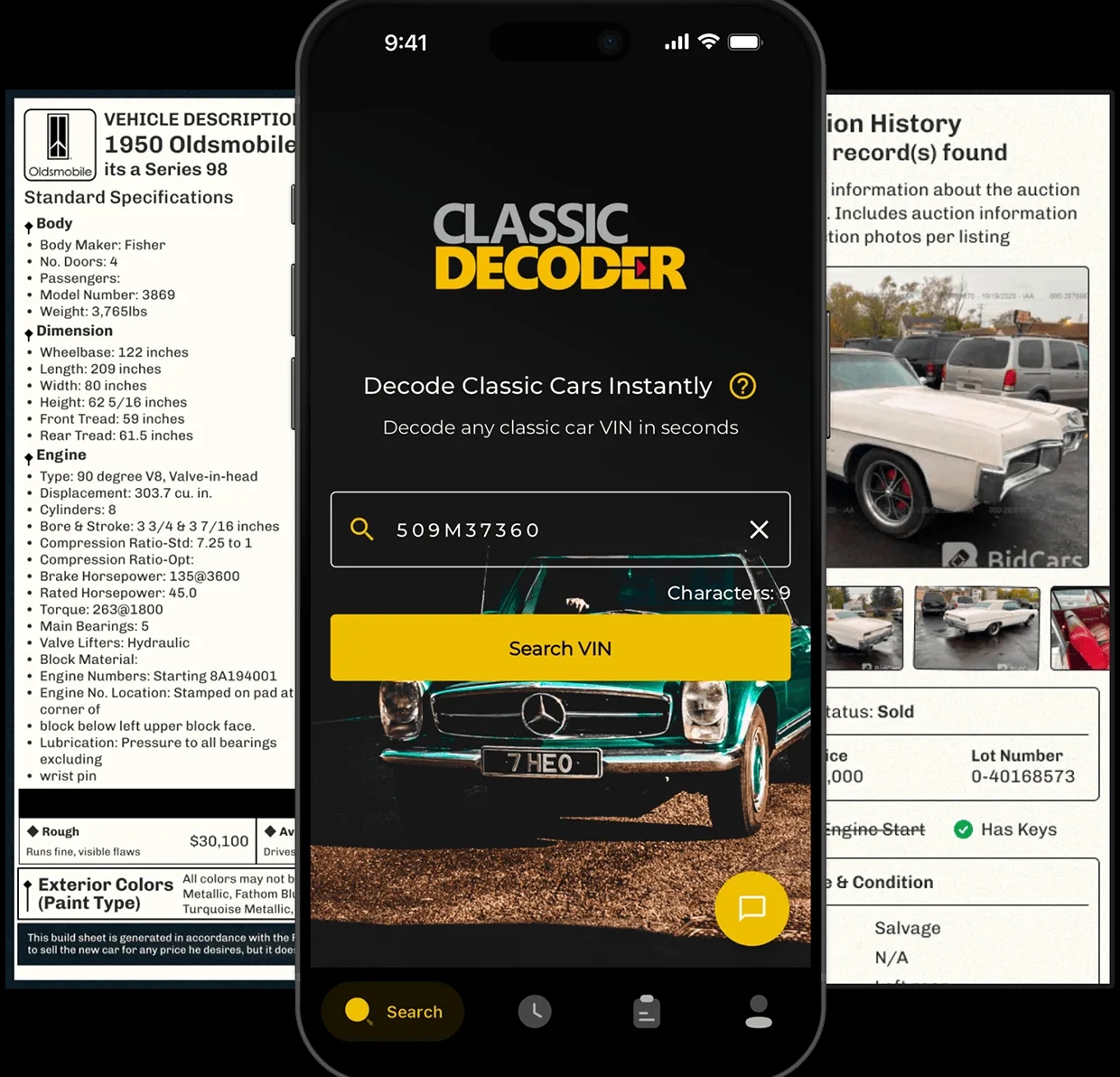1972 Mercury Montego
The 1972 Mercury Montego: a big, comfy cruiser! Think early 70s style – boxy, chrome-heavy, and undeniably American. Part of Ford's lineup, it wasn't a standout but reflected the era's love for large cars. Not hugely significant culturally, but a solid representation of its time. Think "family road trip."
Decode Classic VINs to Get Vehicle History Report and Build Sheet
The Timeless Appeal of the 1972 Mercury Montego
The 1972 Mercury Montego is more than just a classic car—it's a piece of history. This mid-sized marvel symbolizes the adventurous spirit of the 1970s automotive scene and remains a beloved icon among car enthusiasts even today.

1972 Mercury Montego Models:
Select the vehicle's model to see the correct data for it.
How Much is Mercury Montego Worth?
Original MSRP :$2,859.00
Outstanding
Clean
Average
Rough
1972 Mercury Montego Specs
Interested in buying a classic car or selling one?
Access detailed history reports for classic vehicles from hundreds of manufacturers.
- Accident Records
- Theft Records
- Loan & Lien Information
- Auction Information
- Salvage Information and more

History of the 1972 Mercury Montego
The Montego was a part of the Mercury lineup during a transitional era for the automotive industry. Emerging from the Lincoln-Mercury Division, the car was built during a time when consumer demand was shifting toward stylish yet performance-focused vehicles. The Montego encapsulated this dual appeal with its sleek design and robust engine options.
Learn more about a classic car: Get Build Sheet by VIN.
Access reproduced classic build sheets to learn more about your classic vehicle details.
- Standard Specifications
- Original Base Price
- Standard & Optional Equipment
- Exterior & Interior Colors
- VIN ID & Location description

1972 Mercury Montego Detailed Specifications
Originally, the Montego sported a 250-cubic-inch straight-six engine, but those looking for more power could opt for the formidable 429 cubic inch V8, which pushed the car's performance to impressive heights. This engine could get the car from 0 to 60 mph in under 8 seconds—a feat that was quite the talk back then.
Important Links for Car Enthusiasts
Need to verify the history or specifications of a classic car? The tool offers valuable insights for verifying authenticity and past ownership. And for those vehicles preceding 1981, a handy is available.
Popular Figures Who Own Classic Cars
When it comes to classic cars, a bit of celebrity ownership can skyrocket a vehicle's desirability. Let's dive into the notable figures who've added a dash of fame to their favored rides:
Jim Spieth
Jim Spieth, a name familiar to race track enthusiasts, owned a 1972 Mercury Montego GT that saw some action at the Bristol Speedway. It's always exhilarating to see celebrities engage with their classic cars in such dynamic settings.
Jerry Seinfeld
Jerry Seinfeld isn't just about laughter; this comedian's got a car collection that would spark envy in any auto aficionado. His penchant for the Mercury Montego comes as no surprise given its history and performance.
Paul McCartney
Quite the gearhead, McCartney's collection includes several classic cars, each with its own story. Owning pieces like the Montego aligns perfectly with his taste for iconic designs.
Fun Facts about the 1972 Mercury Montego
Did you know the Montego once received a nod on the TV show 'Misfits of Science'? Not only did it spawn automotive envy, but it also made its mark in pop culture.
Why a Classic Car's Past Matters
Knowing a classic car's past is crucial. Whether you're buying or selling, reports like the offer insight into:
Accident Records
Theft Records
Loan & Lien Information
Auction Information
Salvage Information and more.
And for those more elusive vehicles? A works wonders! While some vehicles come with a , always ensure you check details.
Interested in Buying or Selling a Classic Car?
Check the nitty-gritty of your car's life with tools like a . It's invaluable for confirming every original feature. Trust me, nothing beats having all the details before you steer into a purchase or sale.
Conclusion
Understanding the unique intricacies and histories of models like the 1972 Mercury Montego not only heightens appreciation but solidifies their place in automotive history. These cars aren't just transportation—they're time machines to an era brimming with creativity and freedom.
Classic VIN Decoder App |Now available on both Android and iOS!
At Classic Decoder, we believe that developing a mobile app is a great way to extend our classic car data solution hub to as many users as possible across the globe. Our app is built with users and precision in mind. It holds the key to unlocking the history and details of any retro car at your fingertips. It also comes with fascinating and user-friendly features that make it stand out from other mobile apps designed for this purpose.
The Classic Decoder app lets you decode and lookup any classic VIN in a flash. Access accurate vehicle information and history, make an informed decision faster, and buy and trade in classic cars with confidence.

Download The Classic Decoder App now.
Some unique features include:
- Support all classic VIN lengths from 5 to 13 digits
- Support classic cars produced from 1910 – 1980
- Online Garage features – to add and manage your vehicles
- 24/7 Customer Support
- Easy onboarding for first-time users
Explore Mercury Montego from Other Years
Frequently Asked Questions
Well, the '72 Montego? Think boxy, that's the word. It's got that classic 70s American muscle car vibe; you know, long hood, short deck. It's easily identified by its distinctive grille, which, to be honest, is kinda like a grumpy face – but in a cool, retro way. They also had a pretty unique taillight design, something you don't see every day, and I think they are pretty darn good looking for a 50-year-old car. But, you know, beauty is in the eye of the beholder, right? The overall styling, if you're into that kinda thing, really sets it apart from other cars of that era. So, yeah, those are some of its hallmarks.
Okay, so engine choices? You had a range, from pretty tame to, well, let's just say 'enthusiastic.' The base engine was typically a smaller V8, but you could upgrade to larger displacement options; some pretty powerful hunks of metal, if I do say so myself. Think of it like ordering a pizza – you could go with the basic cheese or add all the toppings. Of course, the more powerful engines were definitely more gas-guzzling beasts, which, you know, was kind of par for the course back then. Specific details on available engine sizes and horsepower ratings? You'd best check out a detailed specs sheet; it's a bit much for me to recall perfectly.
The Montego came in a few styles. You had the standard two-door hardtop, which was popular, then the four-door sedan, very practical. Some might say practical in a pretty big, slightly awkward way. And finally, there was a station wagon version, perfect for those big family trips — or hauling a whole lot of stuff. Think of it as a vehicle for all your life's needs; family, friends, or even that crazy hobby of yours. Now, finding one of those wagons in good condition nowadays is, to put it lightly, pretty tough.
Ah, the million-dollar question, or should I say, the many-thousand-dollar question! Prices vary wildly. It all depends on condition, you know, rust, mileage, the engine (those larger ones can demand a higher price, oddly enough), how original it is, whether it’s been restored. Think of it like buying a house – location, location, location. A perfectly restored, super rare model might fetch a pretty penny, but a rough project car? It could be a real bargain, but you know, with a lot of work involved. It's a very big range of potential prices. You'll need to do some serious homework; there are many online resources for this.
Like any classic car, there's always something to tinker with, and the Montego is no exception. Rust is usually a big issue, especially in areas with harsh winters. You gotta keep an eye out for that, and electrical problems are fairly common, too. Plus, those big V8s? They are thirsty. Think of it as a beloved but slightly temperamental friend – it needs a bit of attention and care, but if you maintain it well, it will reward you. Again, online forums and owner's clubs are your best bet for details.

